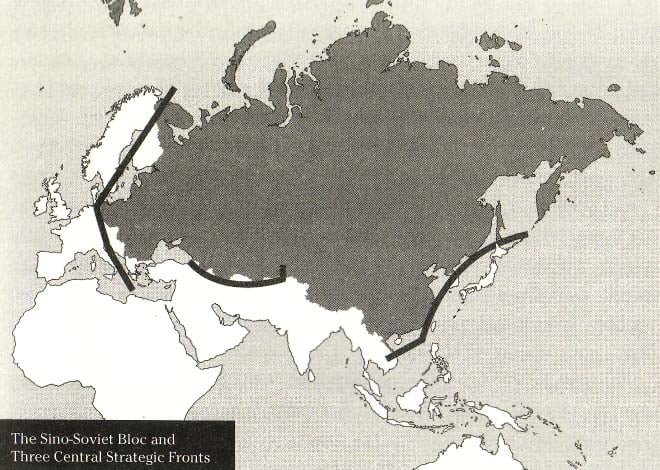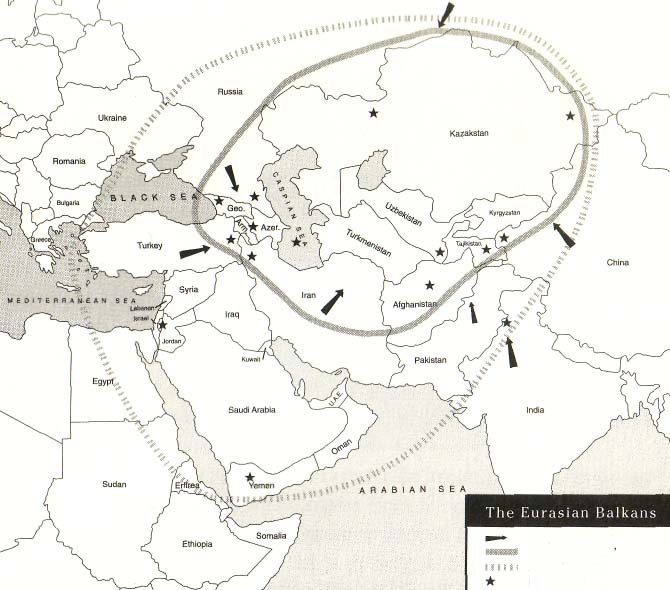Originally posted by yerazhishda
View Post
Although I am not a financial expert (I hate numbers), I read a lot and I have observed global politics for a long time now. In my opinion, the current crisis is much-much more serious than we are led to believe. We are not being told the severity of the turmoil in Wall Street because government officials along with Wall Street executives and news media representatives are engaged in a concerted effort to downplay the current financial crisis in an attempt to alleviate concerns in the general public. However, the situation is getting so bad now that despite their best efforts they can no longer hide it.
While the US was a beloved industrial power with substantial gold reserves and natural wealth, the US dollar was powerful, claimed by many to be "almighty," an obvious reference to its perceived divine power (perhaps to its detriment). Due to its stability, strenght and longterm promise, nations worldwide chose to trade in the US dollar, thereby further elevating its value in the global market. This global reverence towards the US dollar reached its height in the post-World War Two years and then again in the post-Soviet years. However, the dollar's longterm prospects began to change when the US economy began to transform itself from an industry based economy to a service based consumer economy led by financial institutions and international corporations. What's more, by the 1970s (?) the US government no longer backed the dollar with gold reserves. With the dropping of the traditional gold system, the legal tender essentially became a government backed credit, a piece of paper with nothing to back it up other than the government's word. What's more, the recent years were plagued by liberal lending practices, chronic mismanagement, severe corruption, etc., which also began to gradually undermine the dollar.
By the turn of the 21 century the US dollar no longer looked as stable or as promising as it had been in the past. This, coupled with major geopolitical tangles the US government kept getting involved in, encouraged some major nations to begin flirting with the idea of moving away from the US dollar in their trade transactions, further weakening the US currency. As a result of all this, the US dollar has been worthless as a currency for some time now. During the 20th century, the dollar managed to first create and then maintained a high global posture while America was considered to be the leader of the so-called free world. And in recent years the dollar got a major boost after the Soviet Union's collapse, making America 'the' undisputed global superpower. So, in a sense, the dollar's current worth is derived from its previous momentum and a lot of political 'hype' and not much else. For some time now I have been saying - don't believe the hype.
Geopolitically, things have changed quite a bit since the dawn of the 21st century. China rising, India rising, Iran rising, Russia rising... Since the financial power of the US is intimately connected to its preponderance on the global stage, US government officials and financial experts must have seen the looming financial crisis. Seeing it, they had to take action to secure their wealth and power. However, instead of attempting to devise plans that would truly remedy the root causes of the nation's economic problems, special interests in government began devising plans that were politically and financially very risky. In a sense, these special interests sought quick fixes that could also yield high dividends. So, they eventually began to plan the invasion of the Middle East as an attempt to control the region's energy wealth. There was also talk that if Washington could control Middle Eastern and Central Asian energy distribution it could also control China, since China, as big as it's economy is, it is not an energy producer. Moreover, taking advantage of Russia's political weakness during the 1990s, Washington also planned to setup shop in the immensely energy rich republics of Central Asia. Naturally, the Balkans and the Caucasus also played a crucial part in these equations. In a certain sense, this was a race against time for Washington.
However, the government had to somehow convince "we the people" that we had to do this. But how? How could they convince the people that they had to willingly carry the burden and support the invasion of nations and be involved in armed conflicts overseas for the foreseeable future?
Difficult task, no?
Well, in my opinion, the answer was - September 11, 2001. That highly suspicious event convinced the grazers in this nation (the majority) that the US had to get involved in bloody militarily campaigns overseas, not surprisingly mainly in the Middle East and Central Asia. For the grazers, it was a simply a matter of protecting America and you know, freedom... democracy... human rights... etc... For government officials, however, it was simply a matter of getting their hands on black gold so that they can revitalize their weakening financial system and maintain their political advantage over Russia and China. Of course there were several other major factors involved: Israeli lobby, the defense industry, mega corporations... Nevertheless, as a result of 9/11 we saw the US (and its lackeys) getting involved in conflicts from the Balkans to the Caucasus, from the Middle East to Central Asia. I need to mention here that Washington's agenda had started several years prior to the 9/11 attacks, the 9/11 attacks served to accelerate it and intensify it.
Needless to say, Washington's moves have backfired in the Middle East, Central Asia and most recently in the Caucasus; but succeeded somewhat in the Balkans. Overall, the West did not realize its ambitions in Central Asia (which was to control the massive oil/gas wealth of the region) because Russia, rebounding for their 1990's slumber, gradually managed to make longterm deals with Central Asian republics and in a sense monopolized their energy distribution. The West was not able to realize its ambitions in the Middle East (which was to exploit Iraq's oil wealth and impose itself on Gulf states) because the Iraqi people did not accept them as liberators, as Washington had initially hoped. The West did not realize its ambition in Afghanistan (which was to become a route through which Central Asian energy would be diverted south to Pakistan and beyond) because of botched deals with Pakistani officials and the Taliban. And, finally, the US was not able to realize its ambitions in the Caucasus (which was to divert Central Asian energy through Azerbaijan and Georgia to the West) because Moscow recently crushed their puppet in Tbilisi.
Therefore, the major gamble has in a sense backfired severely. These quagmires are now costing the US government hundreds of billions of dollars annually. Don't forget that the US already has approximately a ten trillion dollar debt.
All this means: The US has a hollow economy with no future.
What does the US produce anymore? The answer is, only arms. The US is the number one arms exporter in the world. Which is quite revealing, incidentally. Nevertheless, China is becoming the economic superpower, surpassing Japan, Germany and the US. As global demand for energy rises, energy resources dwindle. The undisputed 'natural resource' superpower today is Russia. The world's last major proven reserves today (which are located in Eurasia) are more-or-less controlled by Moscow. In recent years China and Russia have been getting closer, economically, politically and militarily. And when you join together the world's biggest producer of goods (who also happens to have the world's largest military) with the world's biggest holder of natural wealth (who is also a military superpower) - you end up having a 'supermegapower' on your hands.
Anyway, I would be afraid of what the future holds in America because serious governmental policy in the US is not made by American patriots, they are made by the Federal Reserve (a privately owned institution that controls the US dollar), by international mega corporations, by the Israeli lobby, by the oil lobby, by the defense industry... Unless these people begin placing America's well being ahead of their special interests this nation will implode and its demise will be worst than that of Rome's...








.jpg)




Comment